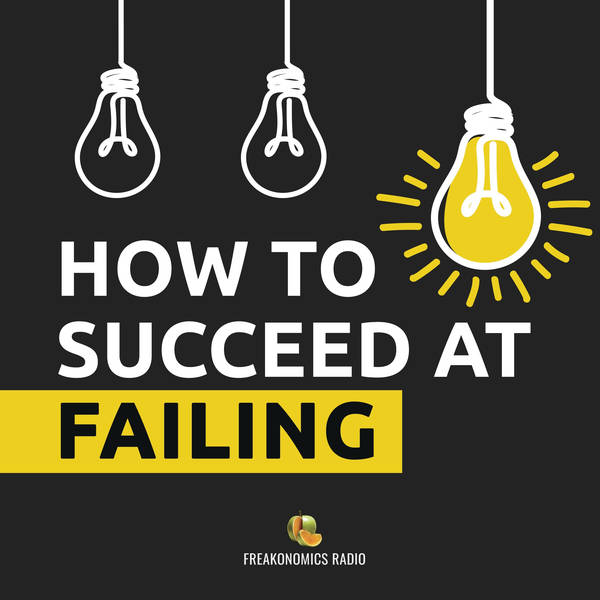
562. How to Succeed at Failing, Part 2: Life and Death
In medicine, failure can be catastrophic. It can also produce discoveries that save millions of lives. Tales from the front line, the lab, and the I.T. department.
RESOURCES:
Right Kind of Wrong: The Science of Failing Well, by Amy Edmondson (2023)."Reconsidering the Application of Systems Thinking in Healthcare: The RaDonda Vaught Case," by Connor Lusk, Elise DeForest, Gabriel Segarra, David M. Neyens, James H. Abernathy III, and Ken Catchpole (British Journal of Anaesthesia, 2022)."Dispelling the Myth That Organizations Learn From Failure," by Jeffrey Ray (SSRN, 2016)."A New, Evidence-Based Estimate of Patient Harms Associated With Hospital Care," by John T. James (Journal of Patient Safety, 2013).To Err is Human: Building a Safer Health System, by the National Academy of Sciences (1999)."Polymers for the Sustained Release of Proteins and Other Macromolecules," by Robert Langer and Judah Folkman (Nature, 1976).EXTRAS:
"How to Succeed at Failing," series by Freakonomics Radio (2023)."Will a Covid-19 Vaccine Change the Future of Medical Research?" by Freakonomics Radio (2020)."Bad Medicine, Part 3: Death by Diagnosis," by Freakonomics Radio (2016).SOURCES:
Amy Edmondson, professor of leadership management at Harvard Business School.Carole Hemmelgarn, co-founder of Patients for Patient Safety U.S. and director of the Clinical Quality, Safety & Leadership Master’s program at Georgetown University.Gary Klein, cognitive psychologist and pioneer in the field of naturalistic decision making.Robert Langer, institute professor and head of the Langer Lab at the Massachusetts Institute of Technology.John Van Reenen, professor at the London School of Economics.